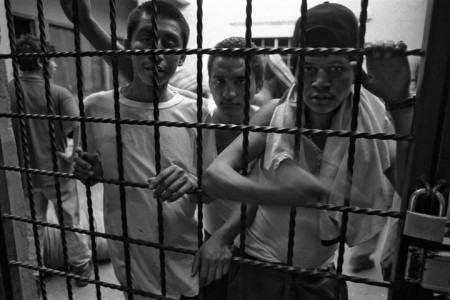At the turn of the century, growing levels of violence on the streets of Central American countries and, sensationalistic media coverage of youth gangs heightened public feelings of insecurity. The governments in El Salvador, Honduras and to a lesser extent Guatemala responded by equating youth gangs with national security.
Adopting a zero tolerance stance put these nations in line philosophically with the law enforcement paradigm that had been on the ascent in the US since the 1990s. However levels of operational repression especially under the Super Mano Dura policy (Super Iron Fist) in El Salvador began to undermine the professionalizing reforms begun when the Salvadoran Peace Accords officially separated the police from the military. Adoption of zero tolerance in Honduras with Operacion Libertad (Operation Freedom) and in Guatemala with Plan Escoba (the Sweep) intensified regional trends that undermined the development of due process, respect for the rule of law and human rights.
Under Super Mano Dura policing strategies became exceptionally repressive with SWAT team raids, relaxed standards of evidence, and harsh imprisonment terms. Gang membership itself became a serious crime and tattoos became evidence sufficient for detention. Already overcrowded prisons were soon overflowing and lack of supervision or social programs led to greater levels of criminal organization developing among the incarcerated gang members. At the same time these policies had virtually no impact on homicide rates or indeed upon arrest and sentencing rates resulting from criminal investigation work by the police. Instead the policy was conceived of as crime prevention by locking up as many gang members as possible.
- Read a Washington Office on Latin America analysis of Central American gang policy.
